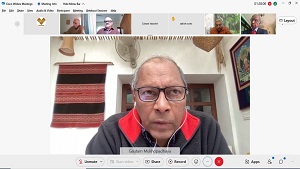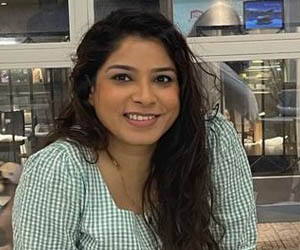On 04 January 2022, the Vivekananda International Foundation (VIF) organised a talk on "Recent Visit of Foreign Secretary to Myanmar and India-Myanmar Relations”. Dr Arvind Gupta, Director VIF, gave the introductory remarks followed by Amb Rajiv Bhatia and Amb Gautam Mukhopadhaya making presentations respectively. Both of them have served as Ambassadors to Myanmar in the previous decades. Dr Gupta spoke about India's interests and role in the country. He underlined the need for India to reach out to Myanmar and its leaders, and the latest visit by the Indian Foreign Secretary to Myanmar was a good step in that direction though it could have been done much earlier.
The discussion started on the note that the defence of Myanmar is the defence of India. The latest visit of the Foreign Secretary in December 2021 was a result of security concerns in North-East India. The discussion highlighted the outcome of the visit, which included meeting with Myanmar military leader Min Aung Hlaing. And, later the Foreign Secretary also met Ambassadors of a few other countries. The visit clearly shows that India wants to engage Myanmar constructively despite the Myanmar military having taken over power.
In this context, it is essential to understand country’s fundamental problem. The issue is that the process of nation-building has not been completed in Myanmar as yet. The internal conflicts continue to mar the country’s progress towards unity. Further, the earlier power structure was triangle-shaped with three forces acting in the struggle for power - the army, political parties and Ethnic Armed Organisations. The fourth power centre has been added, i.e. the National Unity Government (NUG), which has turned the triangle-shaped power structure into a quad.
There is also the question of legitimacy. The Myanmar military considers itself the sole defender of the nation. However, the philosophy of the military is not the same as what was earlier. There is a complete clash between interests of the military and the people’s interests. On the other hand, the opposition forces have failed to put forth a common front. The NLD is currently attempting to build unity with EAOs by through a variety of measures. However, the EAOs are divided and are fighting local wars.
Internationally, the West has continued with the previous policy of sanctioning Myanmar and its military leaders; however, such an approach has not yielded results. It must also be noted that Russia has continued to successfully maintain its relationship with the Myanmar military in these times. While China, on the one hand, faced backlash as its companies were burnt and damaged, the military is also reviving the Chinese projects.
Further, since India does not have much clout in the country, it could coordinate with countries like Japan to increase its influence and preserve its interests. India also needs to curb China's footprint, which should be the topmost priority. Therefore, India should adopt a dual policy – a middle path of prioritising security and democracy. In addition, it was suggested that India should maintain minimal ties with the Tatmadaw. Further, it is desirable for India to start building contacts with ethnic parties. Finally, the discussion concluded that the solution for the current crisis lies within the soil and the burden lies in the hands of the military to resolve the crisis by opening doors for dialogue.










Post new comment